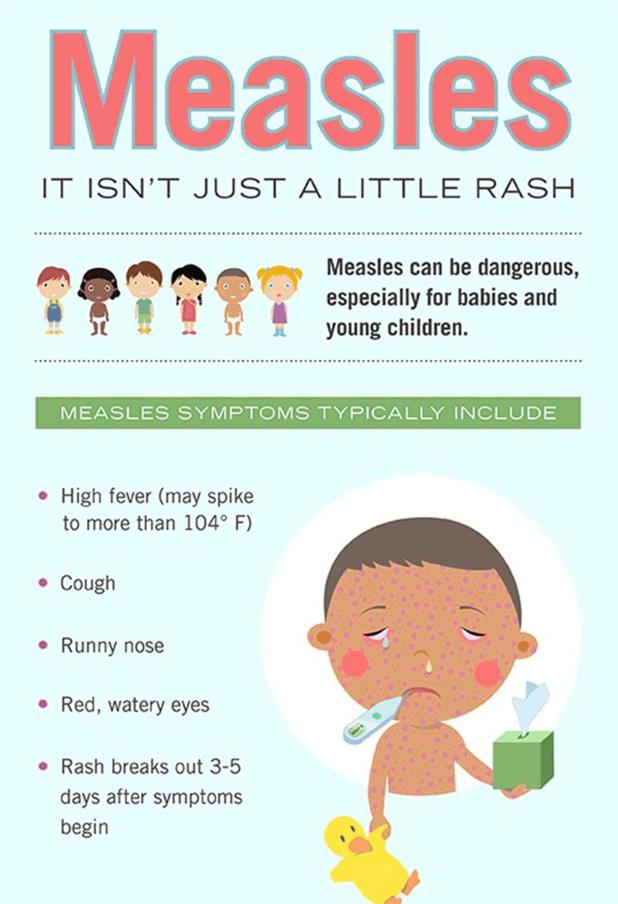
How you can protect your child from measles
By mid-20th century standards, it's not what you'd call an outbreak: 113 cases of measles reported in 18 states, including Louisiana. as of April 4.
But those cases were enough to prompt a warning from the Centers for Disease Control and Prevention about the potential harmful effects and the need to keep vaccinations current.
Here's the latest from the CDC:
Measles is very contagious and can be serious. An unvaccinated child can get measles when traveling abroad or even in the U.S. Two doses of MMR vaccine provide the best protection against measles for your child.
You may be wondering what you as a parent really need to know about measles. CDC has put together a list of the most important facts about measles for parents like you.
Measles can be serious
Some people think of measles as just a little rash and fever that clears up in a few days, but measles can cause serious health complications, especially in children younger than 5 years of age. There is no way to tell in advance the severity of the symptoms your child will experience.
About one in five people in the U.S. who get measles will be hospitalized
One of every 1,000 people with measles will develop brain swelling, which could lead to brain damage
One to three out of 1,000 people with measles will die, even with the best care
Some of the more common measles symptoms include:
—High fever (may spike to more than 104° F).
—Cough,
—Runny nose (coryza)
—Red, watery eyes (conjunctivitis)
—Rash (3-5 days after symptoms begin).
Measles is very contagious
Measles spreads through the air when an infected person coughs or sneezes. It is so contagious that if one person has it, up to 9 out of 10 people around him or her will also become infected if they are not protected. Your child can get measles just by being in a room where a person with measles has been, even up to two hours after that person has left. An infected person can spread measles to others even before knowing he/she has the disease—from four days before developing the measles rash through four days afterward.
Your child can still get
measles in the United States
Measles was declared eliminated from the U.S. in 2000 thanks to a highly effective vaccination program. Eliminated means that the disease is no longer constantly present in this country. However, measles is still common in many parts of the world.
Even if your family does not travel internationally, you could come into contact with measles anywhere in your community. Every year, measles is brought into the United States by unvaccinated travelers (mostly Americans and sometimes foreign visitors) who get measles while they are in other countries. Anyone who is not protected against measles is at risk.
You have the power
to protect your child
The best protection against measles is measles-mumps-rubella (MMR) vaccine. MMR vaccine provides long-lasting protection against all strains of measles.
Your child needs two doses of MMR vaccine for best protection:
The first dose at 12 through 15 months of age
The second dose at 4 through 6 years of age
If your family is traveling overseas, the vaccine recommendations are a little different:
If your baby is 6 through 11 months old, he or she should receive 1 dose of MMR vaccine before leaving.
If your child is 12 months of age or older, he or she will need 2 doses of MMR vaccine (separated by at least 28 days) before departure.
Another vaccine, the measles-mumps-rubella-varicella (MMRV) vaccine, which protects against 4 diseases, is also available to children 12 months through 12 years of age.
